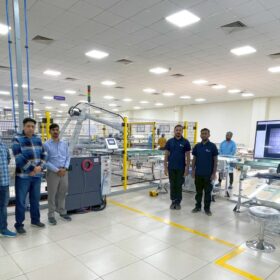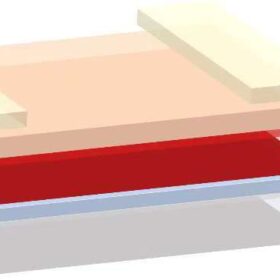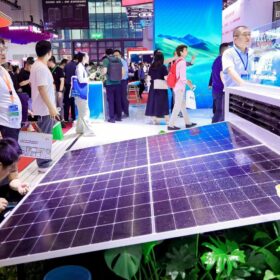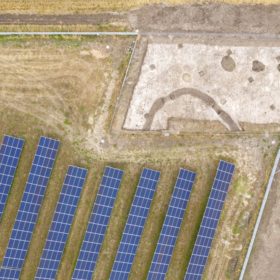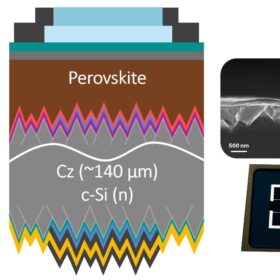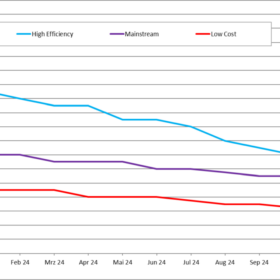Ecoprogetti delivers 300 MW solar panel production line to India’s SAEL
Ecoprogetti has shipped a 300 MW solar panel production line to India’s SAEL, designed to manufacture glass-glass bifacial panels using tunnel oxide passivated contact (TOPCon) M10 cells.
Ultrathin perovskite solar cell based on Gires-Tournois resonator
Scientists in China have conceived a perovskite solar cell that uses a back mirror based on silver to improve light harvesting. The device could reportedly achieved a power conversion efficiency of over 27%.
Chinese PV Industry Brief: January-October solar additions hit 181.3 GW
China’s National Energy Administration (NEA) says developers installed 181.3 GW of new PV capacity from January to October 2024, including 20.42 GW in October alone.
Startup to build wood solar canopies for collective energy in France
BoucL Énergie says it will install wooden-framed parking canopies in southern France, as part of a future collective self-consumption plan.
JA Solar plans 2 GW solar cell, module factory in Egypt
Chinese manufacturer JA Solar has agreed to build a 2 GW solar cell and module factory in Egypt with support from UAE-based Global South Utilities.
Italy approves 6 GW of utility-scale solar in first 10 months of 2024
Italy’s regional governments approved 6 GW of utility-scale solar projects between January and October 2024, according to updates from Terna’s Econnextion map. Most of these projects are concentrated in Sicily, Lazio, Puglia, Sardinia, and Basilicata.
Agrivoltaics can improve water conservation in Africa
Research led by the University of Sheffield installed an off-grid agrivoltaic system in Tanzania and a grid-tied agrivoltaic system in Kenya. They found the installations helped boost crop yield and conserve water while generating electricity at a lower cost than the national grid.
Scientists design 30.22%-efficient perovskite-silicon tandem solar cell with heterojunction bottom tech
An international research team has developed a perovskite-silicon tandem solar cell with a hole transport layer based on methyl-substituted carbazole and submicron-sized textured silicon bottom heterojunction cells. The proposed cell configuration uses commercially available Czochralski silicon wafers and promises efficiencies over 30%.
Global solar module prices stable-to-soft as markets absorb news of U.S. election, policy changes
In a new weekly update for pv magazine, OPIS, a Dow Jones company, provides a quick look at the main price trends in the global PV industry.
Solar panel price drop in November may mark end of downward trend
Martin Schachinger, founder of pvXchange.com, says the 8% price drop in November for solar modules could mark the end of sustained declines, as market signals are pointing to a possible recovery.
